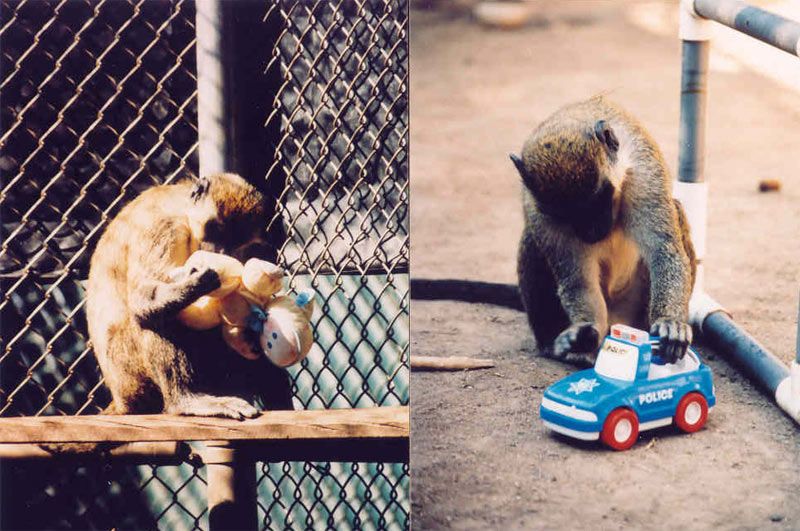While stereotypical gendered parenting might seem to be the result of religious beliefs or cultural norms, even progressive-minded parents can sometimes be guilty of it.
But here’s what I think is funny: it’s fairly obvious that we, as a culture, need to do better to achieve gender equality:
In theory, it seems that we should teach men (who tend to be more disagreeable) to behave more like women (who tend to be more empathetic). And, if you’ve read anything I’ve written lately, you know I think there’s a lot of truth in that.
But in practice, a lot of the things parents do (and don’t do) would suggest that we need to raise little girls more like we raise little boys. (Wait, what? Stick with me here—I promise it’ll all make sense!)
As is often the case with parenting, we need to go beyond prescriptive advice and examine where our parenting behaviors came from, and whether they still serve children growing up in the 21st century. I can think of at least 3 outdated practices; things that parents do with their sons that they’re less likely to do with their daughters. At least one of these is obvious, but the others? Not so much.
Gender-stereotypical toys
This is the obvious one, I think, but it’s also a little tricky. If you haven’t heard this before, it’s actually true that baby girl-monkeys tend to prefer to play with dolls, while baby boy-monkeys prefer to play with trucks:

We’re actually not sure why this is, but it’s also irrelevant; buy your kid a truck and a doll and let them play with whichever one they want! Who cares, right?
The more insidious problem is that the toys we buy for little boys tend to be better at sparking scientific curiosity; we buy them things like LEGO sets, space-themed toys, and electronics (including video games). Luckily, this trend has abated in the last decade or so, but it’s still a problem—especially with low-income parents who are too busy trying to provide for their families to question gender stereotypes.
Spatial language
This problem is closely related, but you’ll probably find it more surprising. When talking to boys, parents are more likely to use what we’ll call “spatial language.” This includes things like naming shapes and using dimensional adjectives (near, far, high, low, big, small, etc.). Often, as parents, we combine them: “Put your toys in the square box on the top shelf.”
You might not think this language matters, but it does. The brains of infants and toddlers absorb so much information, and a study found that toddlers are more likely to use this sort of language themselves when they hear it from their parents as infants.
You know where spatial language is especially useful? In STEM disciplines. Children are at a slight disadvantage if they don’t get used to thinking geometrically at an early age. And the good news is it is indeed slight; the researchers only found small differences in the spatial language that girls hear vs. what boys hear. Still, it’s worth being mindful of.
Roughhousing
I saved the best for last; this one might surprise you! You may be tempted to think that roughhousing serves no purpose other than keeping Dad entertained while he plays with the kids. But you’d be wrong!
Roughhousing (or, as it’s more commonly referred to in psychology, “rough and tumble play) seems to be a fairly universal human behavior. We see it in cultures all around the world, and that should be a clue that it serves some sort of useful purpose developmentally.
And it does. Roughhousing teaches kids their bodies’ limits; how far they can push themselves before they actually get hurt. This is pretty useful, since kids in general don’t have a strong sense of self-preservation. But it also teaches children emotional intelligence. In the process of roughhousing, they learn to read their playmates’ faces to see what behaviors are acceptable, which ones hurt, and which ones get the most laughs.
But don’t forget the context in which we’re discussing this: gender differences. It’s no surprise that parents are more likely to roughhouse with their sons. What’s worth considering, though, is the fact that little girls like to roughhouse too. I don’t have a daughter, but my dog, Winnie, absolutely loves being chased and tickled, and she’s extremely feminine:

Winnie speaks for little girls everywhere when she says “Play with me!”, because pretty much every kid on Earth likes to be picked up and tossed and swung around. (Dogs, less so.)
So go ahead and give your daughter a loving body slam onto the couch. Tell her it’s for her own good, because it is!